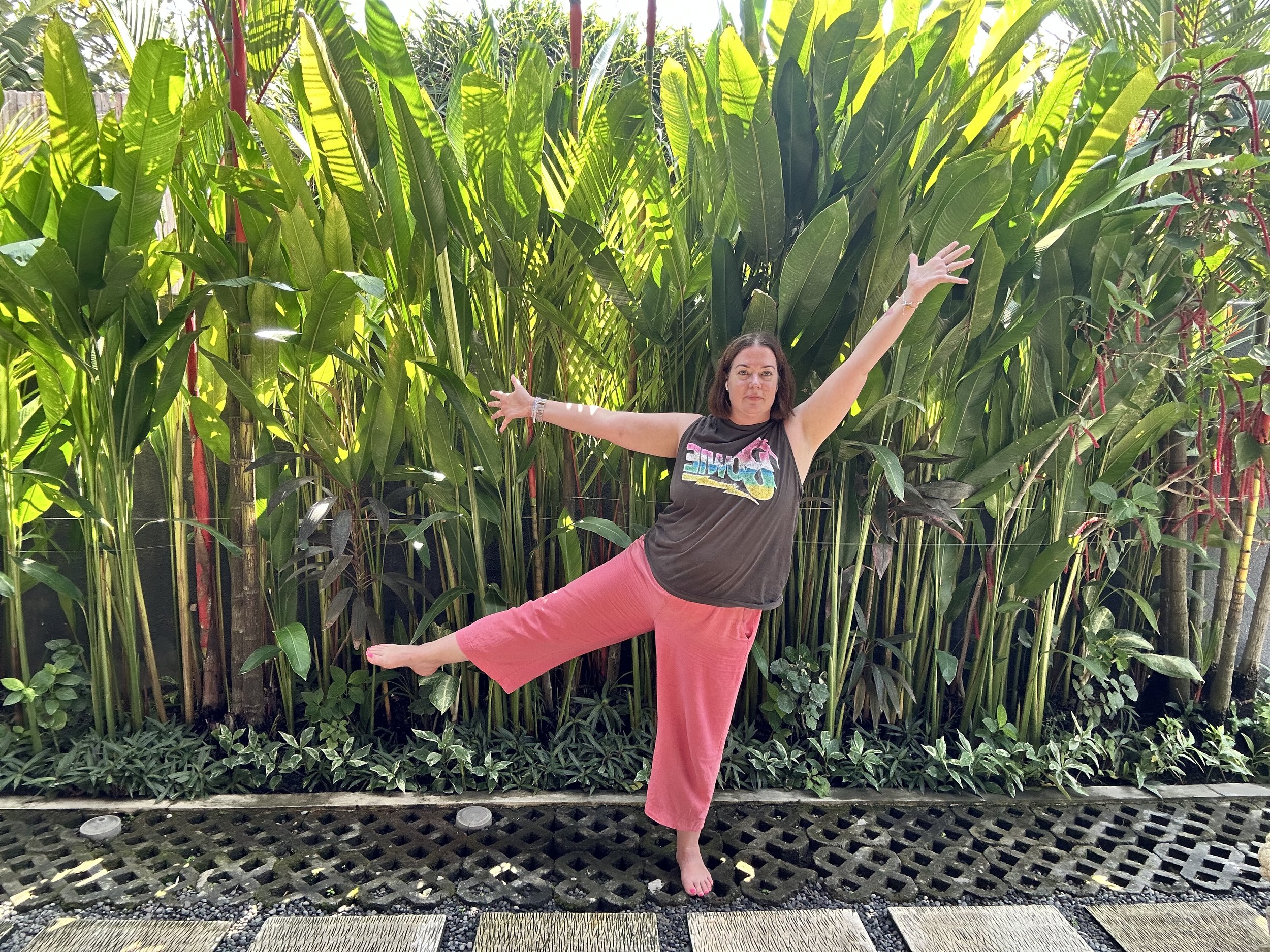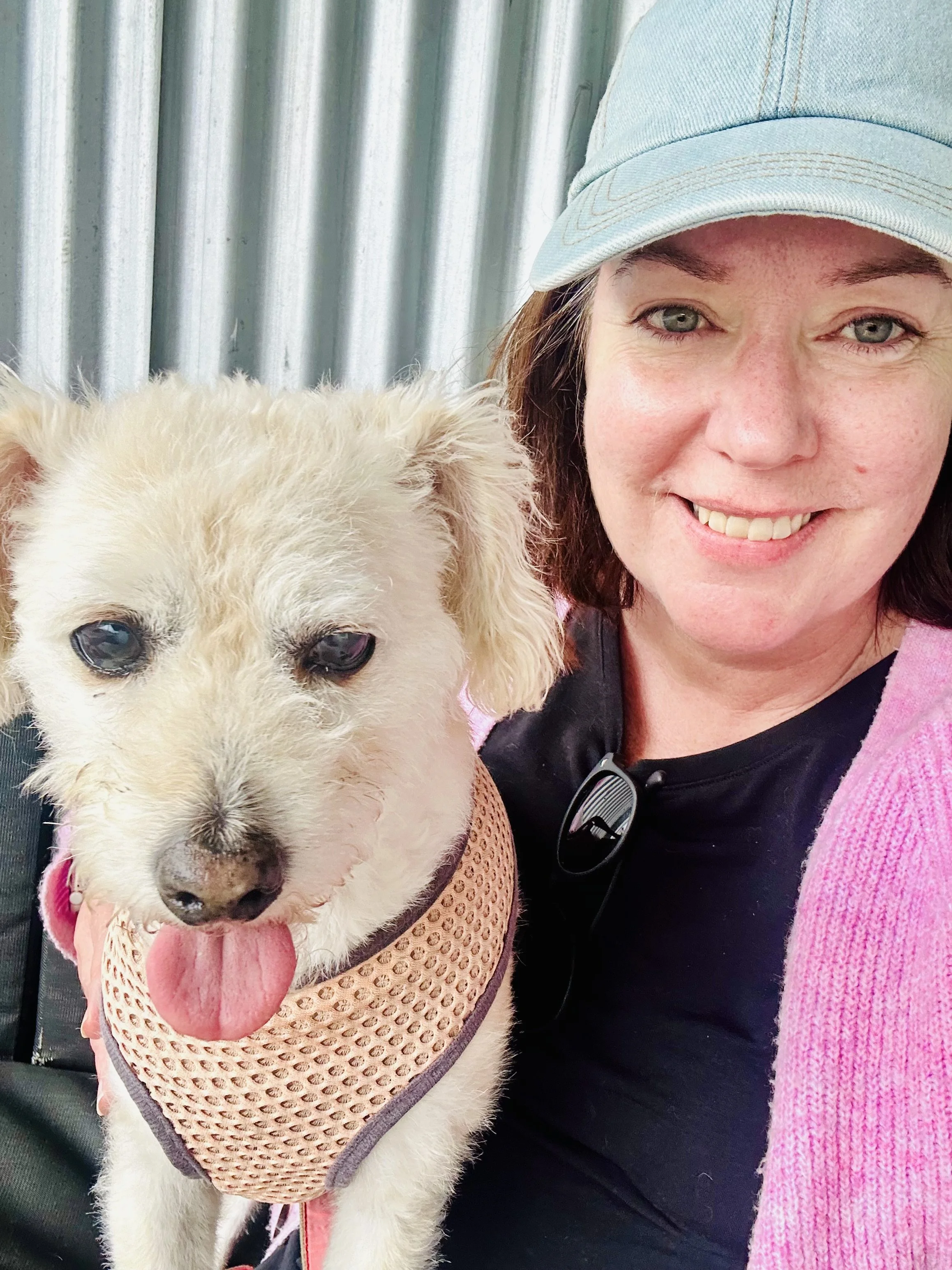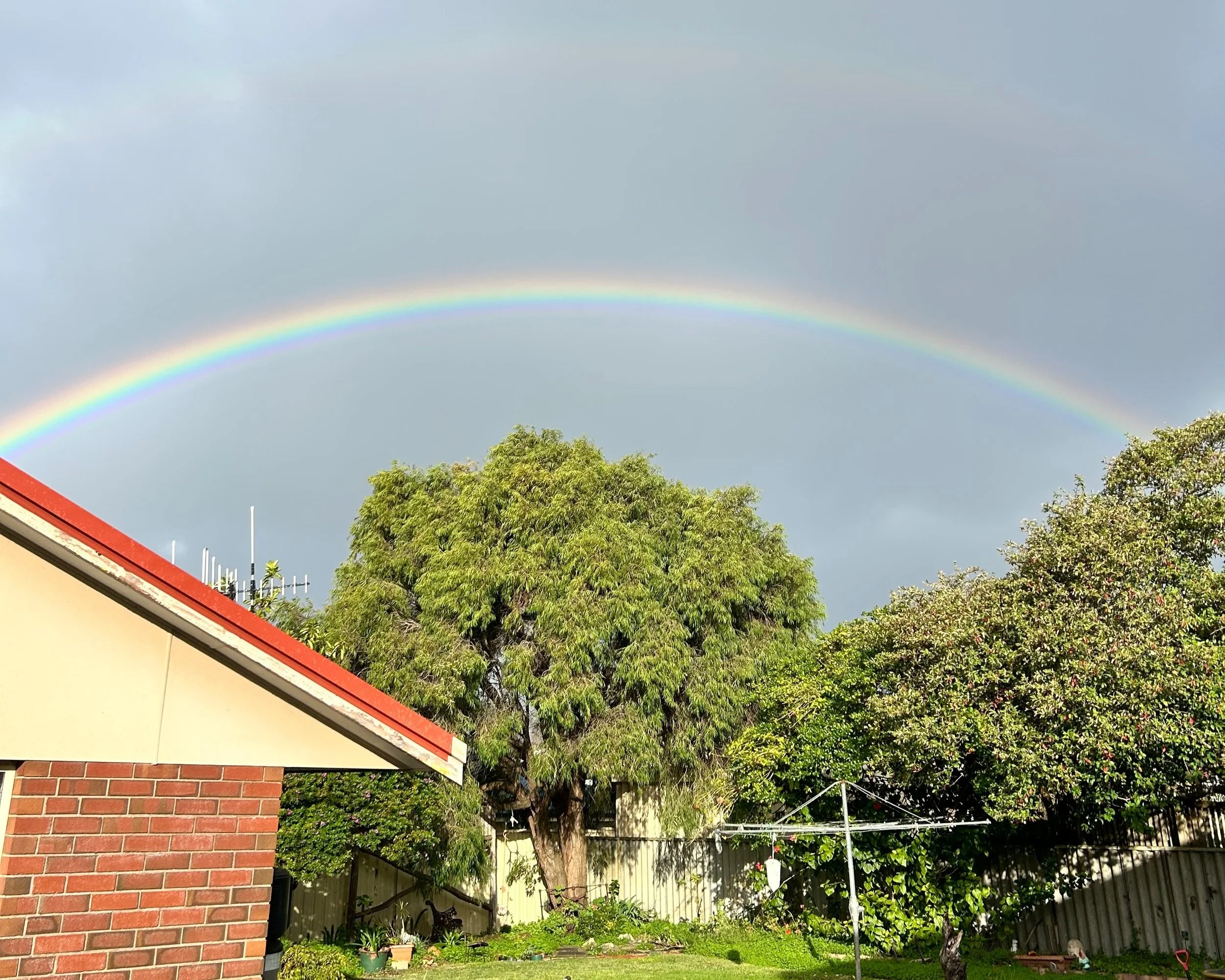I don’t look the same as I did 10 years ago (and nor should I!)
This week I celebrated 10 years since I signed the adoption papers for my dog, Barney. My friend took a wonderful photo of us together (below on the right) and I sent it to the family saying, “And we haven’t changed a bit!” But of course we have (see the below left).
Barney now has diabetes, arthritis and is blind. I’ve had my uterus and ovaries removed, been diagnosed with an autoimmune disease, and gained 20 kilos.
We are not the same, and nor should we be expected to be. Ageing is part of life.
But I feel like I want to address the weight gain because for so many women, this feels like the hardest part of ageing, and it’s the thing that’s most common to us all… because it happens naturally! My weight gain is a bit more than the average woman, but there are many reasons why it happened, and maybe you can relate to just one!
Firstly, menopause impacts weight.
60% of of women will gain weight after menopause and it is common to gain as much as 750g per year. A drop in estrogen and metabolism impacts this. Plus, women naturally lose muscle mass as they age which means they don’t look as lean. Another contributing factor are lifestyle choices like not exercising as much and a change in eating habits. As we age, our muscles and joints are more easily fatigued so it’s common for women to stop exercising the way they might have in their 30s and 40s.
Secondly, a history of dieting is the best way to guarantee weight gain.
I spent my entire 30’s trying to “lose the last 5 kilos.” This meant long periods of calorie counting, excessive exercise and daily weigh-ins. My weight would go down for a bit, then back up, then down again, and back up. This is called weight-cycling and it’s extremely common for anyone who diets. One of the main precursors to weight gain is weight loss. Over 90% of people who deliberately lose weight through dieting will put the weight back on and about 65% of people will put on MORE weight than they lost. A dieter’s metabolism gets screwed in the dieting process and it will never go back to the way it was. This has happened to me.
Thirdly, chronic stress is a huge reason why people put on weight.
Cortisol (the stress hormone) tries to protect a stressed person by putting on a bit of extra weight around the middle. This is an evolutionary hangover from when the main reason why people got stressed was due to war or famine. This meant stress equalled not eating much so the body tried to keep a bit of extra weight on to keep itself going. The years since my hysterectomy in 2017 have been pretty stressful. A lot of that was self-imposed by my thoughts and beliefs about my own achievements. And then the whole chronic pain thing kicked in too. So stress has also been a contributing factor to my weight gain
But here’s the good news for me and anyone else who might have gained weight.
Research says that healthy behaviours are much more important for health than the size of your body. Regular physical activity, a gently balanced diet, no smoking, moderate or no drinking and stress management are all healthy behaviours that have a bigger predictor of good health than the size of your body.
I guess the hardest thing about living in a larger body is not fitting into society’s beauty standards. But I’m a woman over 50 so I’m probably not going to do that anyway 😜. I’ve spent a lot of the years since my hysterectomy learning to love and accept the person I am no matter how I look, and I’m pretty happy with how that’s turning out.
If you need any support with gentle nutrition, a physical activity plan that you’ll actually do, or stress management techniques, then get in touch for a free health history session and see if me being your health coach is right for you!
Yoga Pose of the Week
Star Pose - I feel a bit like a Broadway dancer when I look at this pic! Star pose is a great combination of both balancing and stretching. Starting with both feet on the ground, lift one up and out to the side while stretching the arms up and out above your head. Feels great!
Yoga Philosophy of the Week
Santosha is the Sanskrit word for contentment and is an important tenant of yoga philosophy. Having Barney in my life has taught me a lot about contentment. He loves me no matter how old I’m getting and even though my body has changed. He’s shown me that I can be content with myself too and that I don’t have to achieve perfection to be loveable. Aren’t dog’s great?
Mindful Moment of the Week
Here in Albany, its rainbow season. I’m using rainbows for a little mindfulness boost. Every time I see one I take the time to stop and admire it and bring my attention fully into the present moment.
Body Love Menopause Tip
Have you heard of Dopamine Dressing? It’s when you wear clothes that lift your spirits and give you a hit of joy. It can be through colour, texture and/or style. In case you haven’t noticed, I love pink and now find a way to wear it pretty much every day. I have a pair of pink sandals and a pair of pink boots, and every day I wear them I get a compliment from someone. It lifts my mood and gives me a shot of self-confidence. I highly recommend giving it a go!















